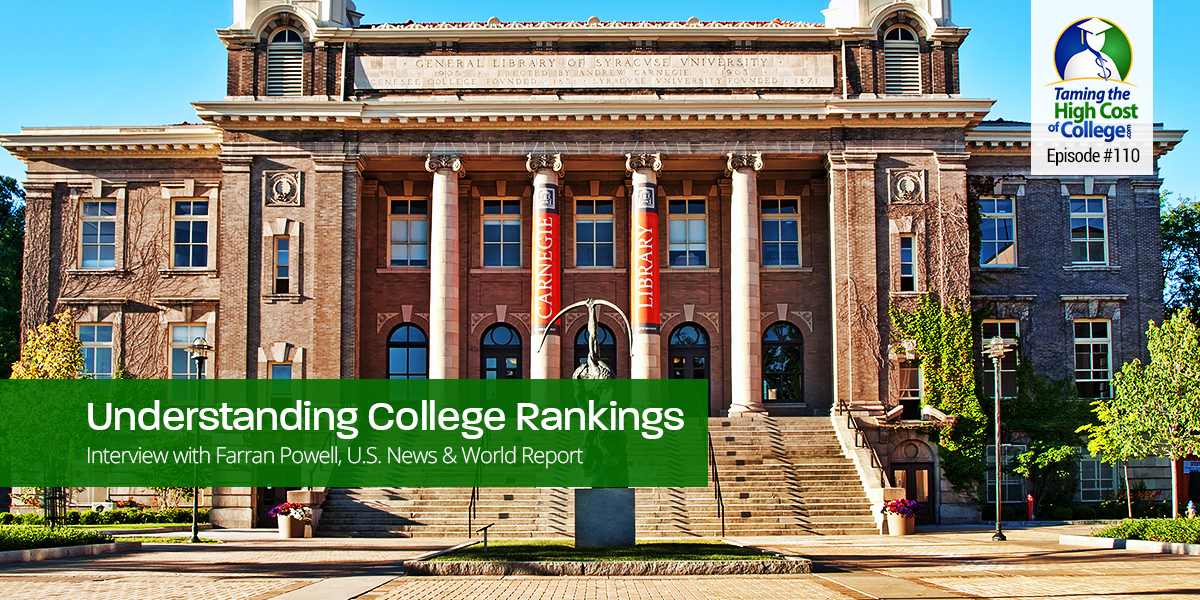THCC110 – Understanding College Rankings Interview with Farran Powell, Writer with U.S. News and World Report
Choosing from ranked schools can be tricky. Is one school really that much better than another? We invited Farran Powell on the show to help clear up what this ranking thing is all about. She is the “Paying for College” writer for the publication that started the ranking craze, U.S. News and World Report.Having written somewhere near 100 articles on the topic, Farran has a wealth of knowledge she shares in this great interview. Read More…


